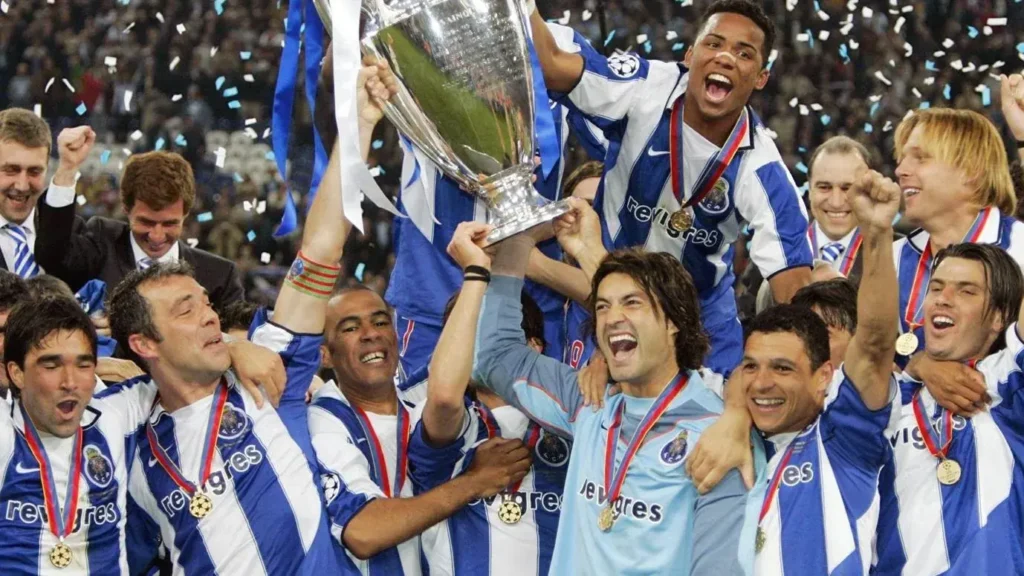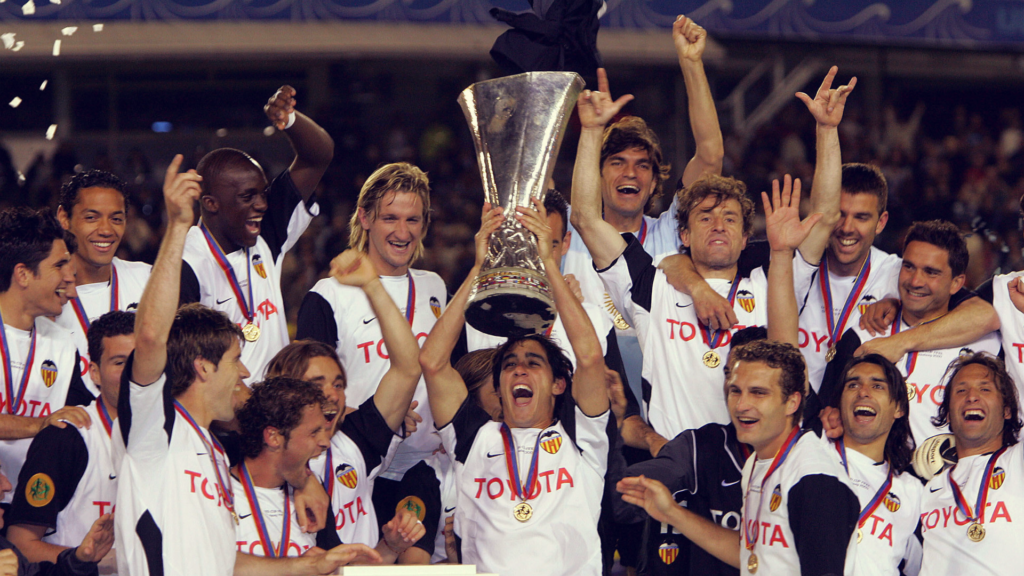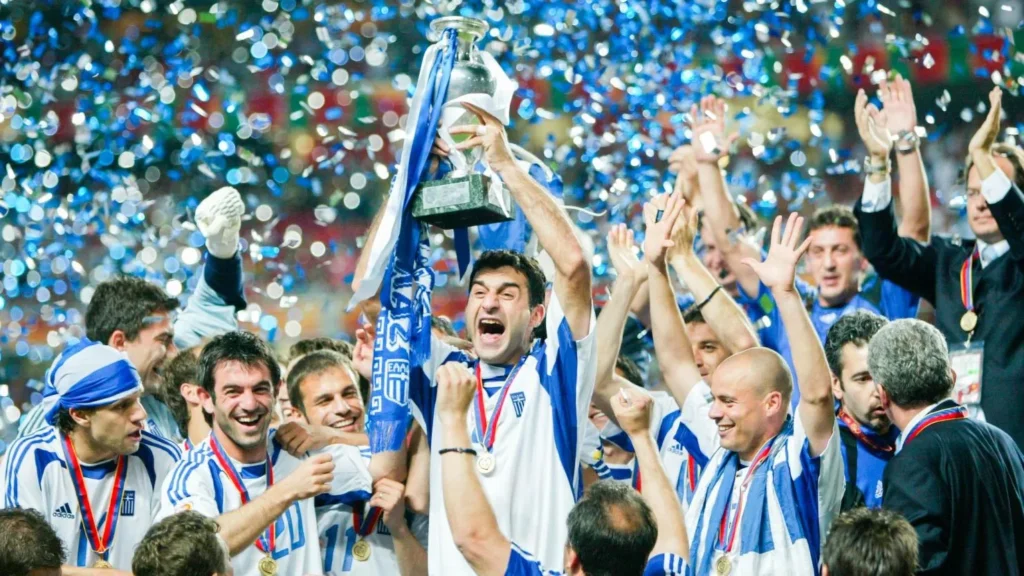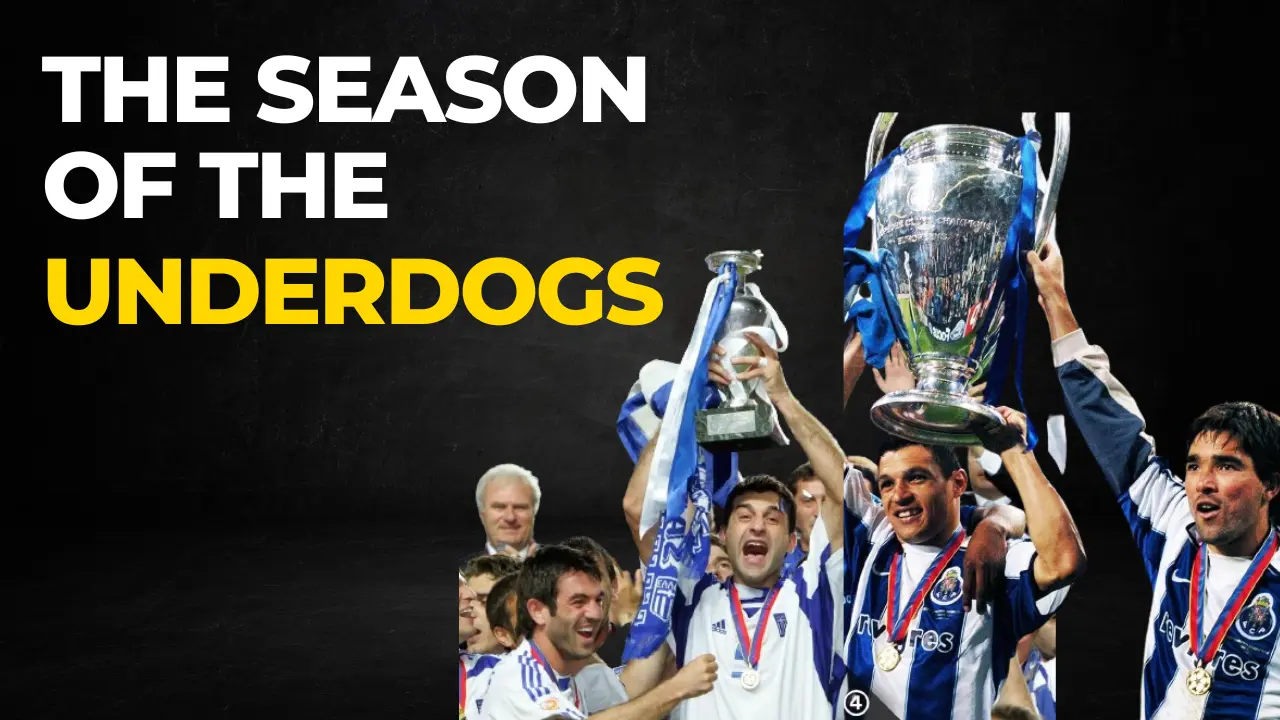The 2024–25 season has been nothing short of a fairytale for underdogs.
RCB finally won the IPL. PSG lifted their first-ever Champions League. Spurs actually won a trophy.
Everywhere you looked, the so-called “bottlers” and nearly-men flipped the script.
But if you think this is the first time underdogs shook the world — think again.
Rewind 20 years, and the 2003–04 football season gave us a masterclass in defying expectations.
It wasn’t just a season… it was a revolution.
From unbeaten runs to surprise champions, that year proved football has room for dreamers — not just dynasties.
2003-2004: A Legacy of Unforgettable Stories:
The Rise of the Unheralded:
At the heart of this season, FC Porto, under the astute guidance of a young José Mourinho, emerged as European champions. Having overcome established giants like Manchester United and Chelsea in the knockout stages, they reached the UEFA Champions League final.

There, they faced another underdog, AS Monaco, led by Didier Deschamps. In a thrilling encounter, Porto emerged victorious, etching their names in Champions League history and marking the beginning of Mourinho’s managerial legend.
This season wasn’t just about Porto, as other underdogs also carved their own paths to glory. Deportivo La Coruña, known for its “beautiful game” philosophy, defied the odds to reach the Champions League semi-finals.
Their journey included memorable victories against AC Milan, a team that currently finds itself in Spain’s third division, highlighting the unpredictable nature of the season.
Double Delights and Unexpected Victories:
Spain also witnessed a similar narrative, with Valencia completing a historic double by claiming both the La Liga and the UEFA Cup. They dethroned the mighty Real Madrid in the league and defeated Marseille in the UEFA Cup final, showcasing their tactical prowess and fighting spirit.

Meanwhile, Real Zaragoza achieved success in the Copa Del Rey, defeating Real Madrid in the final. However, their story took a different turn, as they now find themselves competing in Spain’s second division, highlighting the volatility of footballing fortune.
Germany also saw its share of surprises with Werder Bremen achieving a domestic double by winning both the Bundesliga and the DFB-Pokal. This feat was even more remarkable considering they weren’t considered favorites at the beginning of the season.
Beyond Domestic Borders:
The underdog spirit wasn’t confined to club football. The 2004 European Championship witnessed a fairytale ending with Greece, a team with odds as high as 150-1 to win the tournament, defeating Portugal in the final.

Their disciplined approach and tactical awareness helped them overcome more fancied opponents like France and the Czech Republic, capturing the hearts of fans worldwide and proving that anything is possible in football.
Conclusion:
The 2003–04 season wasn’t just about stats or silverware — it was a celebration of grit, belief, and the magic that happens when the underdogs refuse to back down.
Clubs with smaller budgets and fewer headlines dared to dream big — and delivered.
Two decades later, the 2024–25 season reminded us that the underdog spirit is still alive and kicking.
PSG’s long-awaited European glory, Spurs breaking their trophy curse — they’re all proof that football’s greatest stories aren’t always written by the biggest teams.
Because in this game, heart still matters.
And as long as teams are willing to fight beyond their limits, the roar of the underdogs will never fade.


